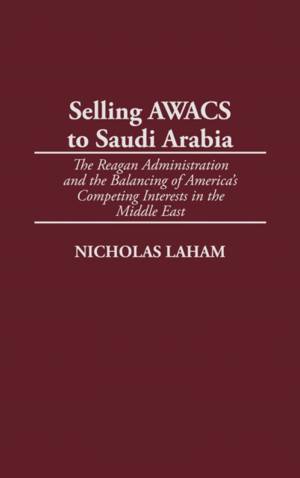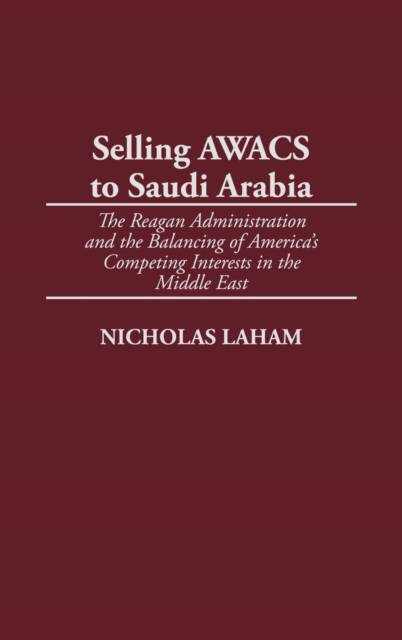
- Retrait gratuit dans votre magasin Club
- 7.000.000 titres dans notre catalogue
- Payer en toute sécurité
- Toujours un magasin près de chez vous
- Retrait gratuit dans votre magasin Club
- 7.000.000 titres dans notre catalogue
- Payer en toute sécurité
- Toujours un magasin près de chez vous
Selling Awacs to Saudi Arabia
The Reagan Administration and the Balancing of America's Competing Interests in the Middle East
Nicholas Laham
Livre relié | Anglais
161,45 €
+ 322 points
Description
The AWACS debate represents one of the most critical and controversial events in the history of American diplomacy and legislative politics. It locked the Reagan administration and opponents of the AWACS sale in a fierce and pitched battle over American policy in the most economically and strategically vital region in the world: the Middle East.
Accordingly, Laham finds there are at least five political lessons to be drawn from the debate. First, contrary to the arguments of its critics in Congress, the pro-Israel lobby does not control American policy in the Middle East. Second, the Senate tends to defer to the authority of the president on matters of foreign policy and national security. Third, while remaining a passive president overall, Reagan was among the most active of chief executives on issues involving the economy and national security. Fourth, given the enormous contribution the AWACS sale made to the vital economic and national security interests of the United States, Reagan's masterful handling of this politically explosive issue provides evidence that he displayed attributes of presidential greatness, but much further study of the other major foreign and domestic policy issues Reagan confronted during his tenure in office will be required before any definitve judgment can be rendered concerning where he stands in the ranking of America's 42 presidents. Fifth, the AWACS debate shows that the United States need not sacrifice its special relationship with Israel in order to forge stronger ties with Saudi Arabia. This analysis will be of particular interest to scholars, students, and policy makers involved with national security issues, presidential politics, interest groups, and Middle East studies.Spécifications
Parties prenantes
- Auteur(s) :
- Editeur:
Contenu
- Nombre de pages :
- 280
- Langue:
- Anglais
Caractéristiques
- EAN:
- 9780275975630
- Date de parution :
- 30-09-02
- Format:
- Livre relié
- Format numérique:
- Genaaid
- Dimensions :
- 157 mm x 251 mm
- Poids :
- 612 g







